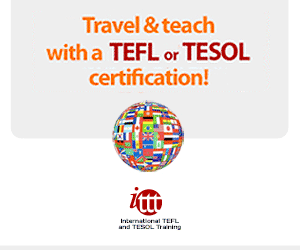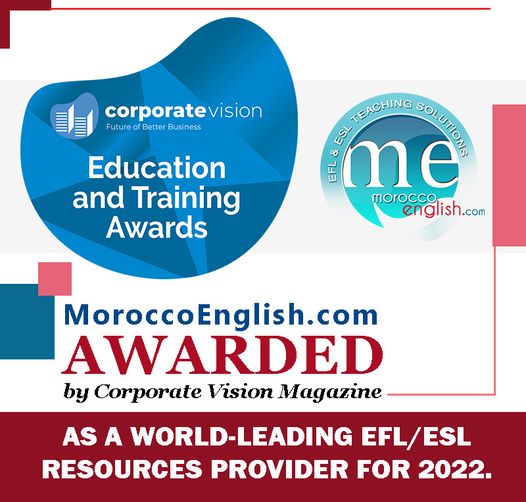Ambassador Edward M. Gabriel
The Hill, ‘Congress Blog’
March 19, 2014
At a time when many pundits are concerned about the disarray in U.S. policy, particularly in the Middle East and North Africa, our country’s oldest ally continues to take steps to build bridges that not only benefit the region, but have very positive consequences for America’s long-term interests in Africa. I’m referring here to recent events that demonstrate how Morocco’s strategic ties to the continent have significant implications for our economic and security interests in the region.
I have just attended the second US-Morocco Business Development Conference in Rabat, Morocco. No ordinary business meeting, it is part of the Morocco-US Strategic Dialogue, and seeks to promote stronger trade and investment ties and greater utilization of the Morocco-US Free Trade Agreement (FTA). I was impressed by the more than 100 US and Moroccan companies, agencies, and organizations that participated in the program, which focused on the investment climate in Morocco, the role of Morocco as a gateway to Africa, and sessions on automotive and aeronautic manufacturing and renewable and other energies.
As the meeting got underway, King Mohammed VI had just concluded a trip that highlighted Morocco’s strong relationships in Africa, and how valuable they can be – not only to Morocco and to Africa, but also to potential international investors.
The king traveled with a delegation of more than 100 people, to Mali, Cote d’Ivoire, Guinea, and Gabon. More than 80 agreements were signed during those visits, covering cooperation in security, environment, commerce, education, agriculture and rural development, mining, gas, and oil initiatives.
There is no doubt that these agreements will open new markets to international partnerships that benefit all the players. The king was very clear in his remarks throughout the tour – that it is time for Africa to work with Africa and take responsibility for the continent’s development. He strongly believes that Africa will gain a great deal by advancing from being perceived as a source of commodities to a more diversified, value-added and substantial economy, in concert with its international partners. Given Morocco’s experience and challenges, King Mohammed VI is keenly aware that the region needs to generate hundreds of thousands of decent-paying jobs, which can be only achieved if governments and the private sectors seize these opportunities.
And the King’s focus went well beyond the economic benefits of more robust and localized growth. In each of the countries, special attention was given to social housing projects, educational cooperation, and the training of imams (prayer leaders) in the moderate form of Islam practiced in Morocco and throughout the region. Education agreements included expanding the number of university scholarships for African students, working together on improving technical and vocational training, specialized training in service industries such as banking and tourism, and triangular aid agreements that involved the International Finance Corporation (IFC).
These visits do a great deal to consolidate Morocco’s already strong leadership position in Africa, a position buoyed by substantial investments included in the agreements. For example, Morocco pledged to dedicate one of its fertilizer plants specifically for Africa to improve local agricultural practices.
In Guinea, the king and President Alpha Condé opened a new flour mill, a joint venture that will create hundreds of jobs. And in Gabon, a $2.3 billion joint-venture for fertilizer factories (two in Morocco, two in Gabon) for African markets, that will take advantage of Morocco’s phosphates and Gabon’s natural gas to increase agricultural output and improve food security across the region.
Morocco has demonstrated time and time again that its focus on regional stability and security is serious and dynamic, providing the kind of leadership and collaboration that can only benefit U.S. interests. As Ambassador Michael Battle, Senior Advisor, U.S.-Africa Leaders Summit at the Department of State, remarked at a recent Ambassadors Rountable on Africa, “Morocco is showing the way within the framework of an approach that doesn’t recognize artificial differences between North and Sub-Saharan Africa.” It is a model worth following that will reap important dividends for all stakeholders.
As the US and others look to broaden their involvement in Africa, they would do well to rely on the King’s vision – for his own country and for Morocco’s African neighbors – which reflects his strong belief that governments must serve the people and that meeting their needs, generating jobs, encouraging entrepreneurship, and raising the aspirations of Moroccans and Africans is the best antidote to terrorism and militant extremism.
Gabriel is the former U.S. ambassador to Morocco, 1997 to 2001, and currently advises the government of Morocco.
These visits do a great deal to consolidate Morocco’s already strong leadership position in Africa, a position buoyed by substantial investments included in the agreements. For example, Morocco pledged to dedicate one of its fertilizer plants specifically for Africa to improve local agricultural practices.
In Guinea, the king and President Alpha Condé opened a new flour mill, a joint venture that will create hundreds of jobs. And in Gabon, a $2.3 billion joint-venture for fertilizer factories (two in Morocco, two in Gabon) for African markets, that will take advantage of Morocco’s phosphates and Gabon’s natural gas to increase agricultural output and improve food security across the region.
Morocco has demonstrated time and time again that its focus on regional stability and security is serious and dynamic, providing the kind of leadership and collaboration that can only benefit U.S. interests. As Ambassador Michael Battle, Senior Advisor, U.S.-Africa Leaders Summit at the Department of State, remarked at a recent Ambassadors Rountable on Africa, “Morocco is showing the way within the framework of an approach that doesn’t recognize artificial differences between North and Sub-Saharan Africa.” It is a model worth following that will reap important dividends for all stakeholders.
As the US and others look to broaden their involvement in Africa, they would do well to rely on the King’s vision – for his own country and for Morocco’s African neighbors – which reflects his strong belief that governments must serve the people and that meeting their needs, generating jobs, encouraging entrepreneurship, and raising the aspirations of Moroccans and Africans is the best antidote to terrorism and militant extremism.
Gabriel is the former U.S. ambassador to Morocco, 1997 to 2001, and currently advises the government of Morocco.
– See more at:
As the meeting got underway, King Mohammed VI had just concluded a trip that highlighted Morocco’s strong relationships in Africa, and how valuable they can be – not only to Morocco and to Africa, but also to potential international investors.
The king traveled with a delegation of more than 100 people, to Mali, Cote d’Ivoire, Guinea, and Gabon. More than 80 agreements were signed during those visits, covering cooperation in security, environment, commerce, education, agriculture and rural development, mining, gas, and oil initiatives.
There is no doubt that these agreements will open new markets to international partnerships that benefit all the players. The king was very clear in his remarks throughout the tour – that it is time for Africa to work with Africa and take responsibility for the continent’s development. He strongly believes that Africa will gain a great deal by advancing from being perceived as a source of commodities to a more diversified, value-added and substantial economy, in concert with its international partners. Given Morocco’s experience and challenges, King Mohammed VI is keenly aware that the region needs to generate hundreds of thousands of decent-paying jobs, which can be only achieved if governments and the private sectors seize these opportunities.
And the King’s focus went well beyond the economic benefits of more robust and localized growth. In each of the countries, special attention was given to social housing projects, educational cooperation, and the training of imams (prayer leaders) in the moderate form of Islam practiced in Morocco and throughout the region. Education agreements included expanding the number of university scholarships for African students, working together on improving technical and vocational training, specialized training in service industries such as banking and tourism, and triangular aid agreements that involved the International Finance Corporation (IFC).
– See more at:







































